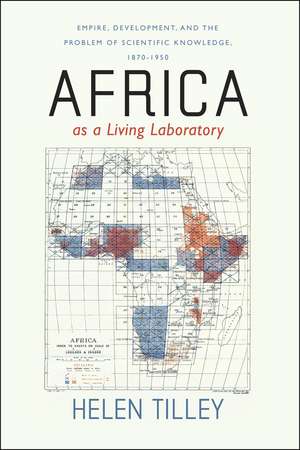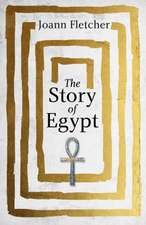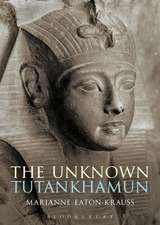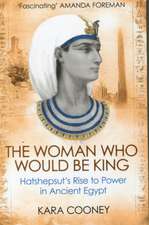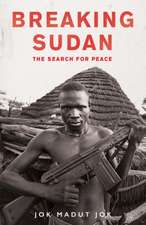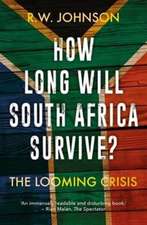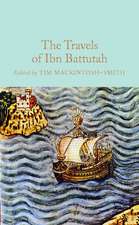Africa as a Living Laboratory: Empire, Development, and the Problem of Scientific Knowledge, 1870-1950
Autor Helen Tilleyen Limba Engleză Paperback – 15 apr 2011
A key source for Helen Tilley’s analysis is the African Research Survey, a project undertaken in the 1930s to explore how modern science was being applied to African problems. This project both embraced and recommended an interdisciplinary approach to research on Africa that, Tilley argues, underscored the heterogeneity of African environments and the interrelations among the problems being studied. While the aim of British colonialists was unquestionably to transform and modernize Africa, their efforts, Tilley contends, were often unexpectedly subverted by scientific concerns with the local and vernacular. Meticulously researched and gracefully argued, Africa as a Living Laboratory transforms our understanding of imperial history, colonial development, and the role science played in both.
Preț: 240.80 lei
Nou
Puncte Express: 361
Preț estimativ în valută:
46.08€ • 48.11$ • 38.13£
46.08€ • 48.11$ • 38.13£
Carte disponibilă
Livrare economică 15-29 martie
Livrare express 01-07 martie pentru 36.12 lei
Preluare comenzi: 021 569.72.76
Specificații
ISBN-13: 9780226803470
ISBN-10: 0226803473
Pagini: 520
Ilustrații: 8 color plates, 2 halftones, 8 line drawings, 48 tables
Dimensiuni: 152 x 229 x 36 mm
Greutate: 0.68 kg
Editura: University of Chicago Press
Colecția University of Chicago Press
ISBN-10: 0226803473
Pagini: 520
Ilustrații: 8 color plates, 2 halftones, 8 line drawings, 48 tables
Dimensiuni: 152 x 229 x 36 mm
Greutate: 0.68 kg
Editura: University of Chicago Press
Colecția University of Chicago Press
Cuprins
List of Illustrations
Acknowledgments
Introduction: Africa as a Living Laboratory
ONE / An Imperial Laboratory: Scientific Societies, Geopolitics, and Territorial Acquisitions
TWO / A Development Laboratory: The African Research Survey, the Machinery of Knowledge, and Imperial Coordination
THREE / An Environmental Laboratory: “Native” Agriculture, Tropical Infertility, and Ecological Models of Development
FOUR / A Medical Laboratory: Infectious Diseases, Ecological Methods, and Modernization
FIVE / A Racial Laboratory: Imperial Politics, Race Prejudice, and Mental Capacity
SIX / An Anthropological Laboratory: Ethnographic Research, Imperial Administration, and Magical Knowledge
SEVEN / A Living Laboratory: Ethnosciences, Field Sciences, and the Problem of Epistemic Pluralism
Appendix: African Colonial Service Employment, 1913–51
Notes
Bibliography
Acknowledgments
Introduction: Africa as a Living Laboratory
ONE / An Imperial Laboratory: Scientific Societies, Geopolitics, and Territorial Acquisitions
TWO / A Development Laboratory: The African Research Survey, the Machinery of Knowledge, and Imperial Coordination
THREE / An Environmental Laboratory: “Native” Agriculture, Tropical Infertility, and Ecological Models of Development
FOUR / A Medical Laboratory: Infectious Diseases, Ecological Methods, and Modernization
FIVE / A Racial Laboratory: Imperial Politics, Race Prejudice, and Mental Capacity
SIX / An Anthropological Laboratory: Ethnographic Research, Imperial Administration, and Magical Knowledge
SEVEN / A Living Laboratory: Ethnosciences, Field Sciences, and the Problem of Epistemic Pluralism
Appendix: African Colonial Service Employment, 1913–51
Notes
Bibliography
